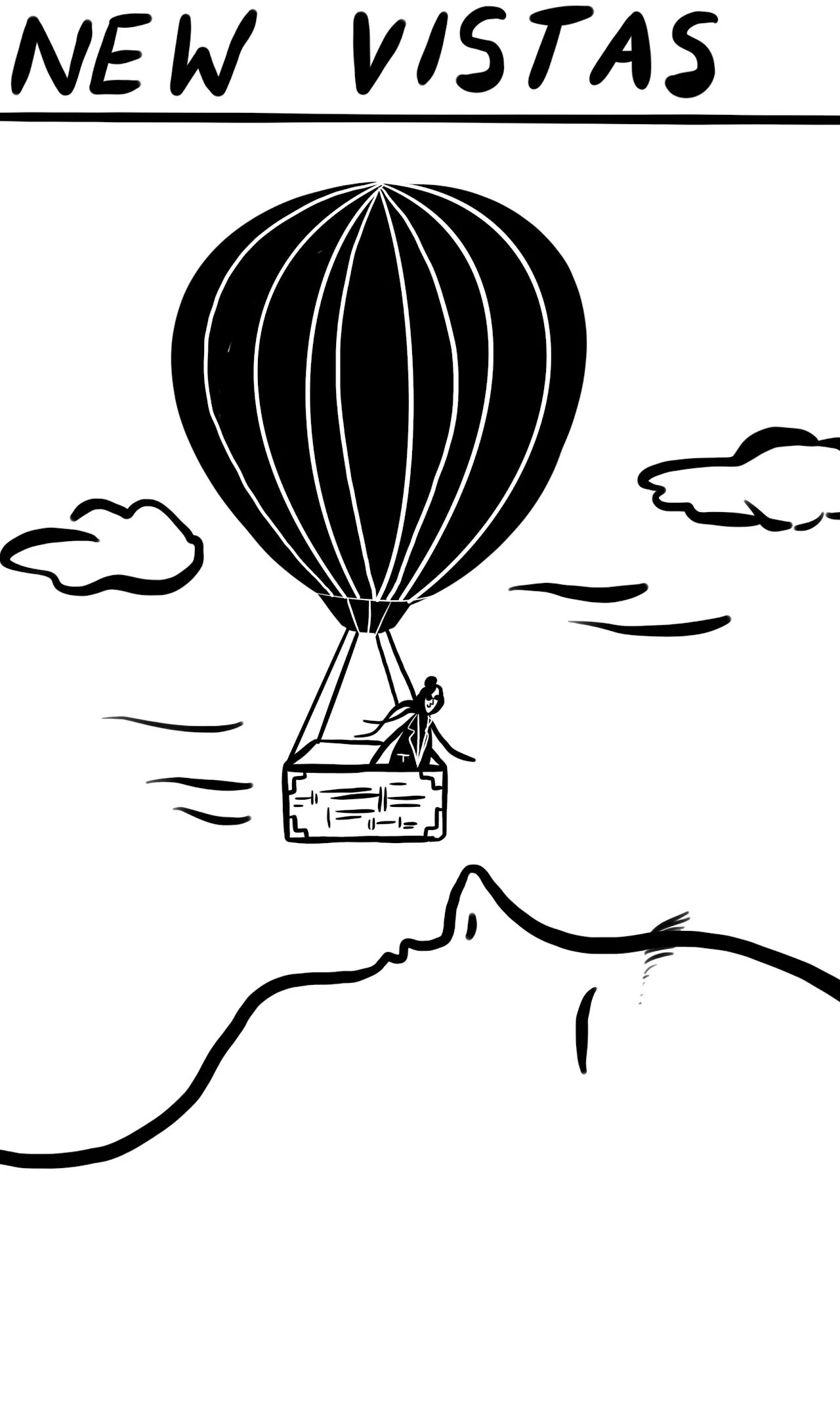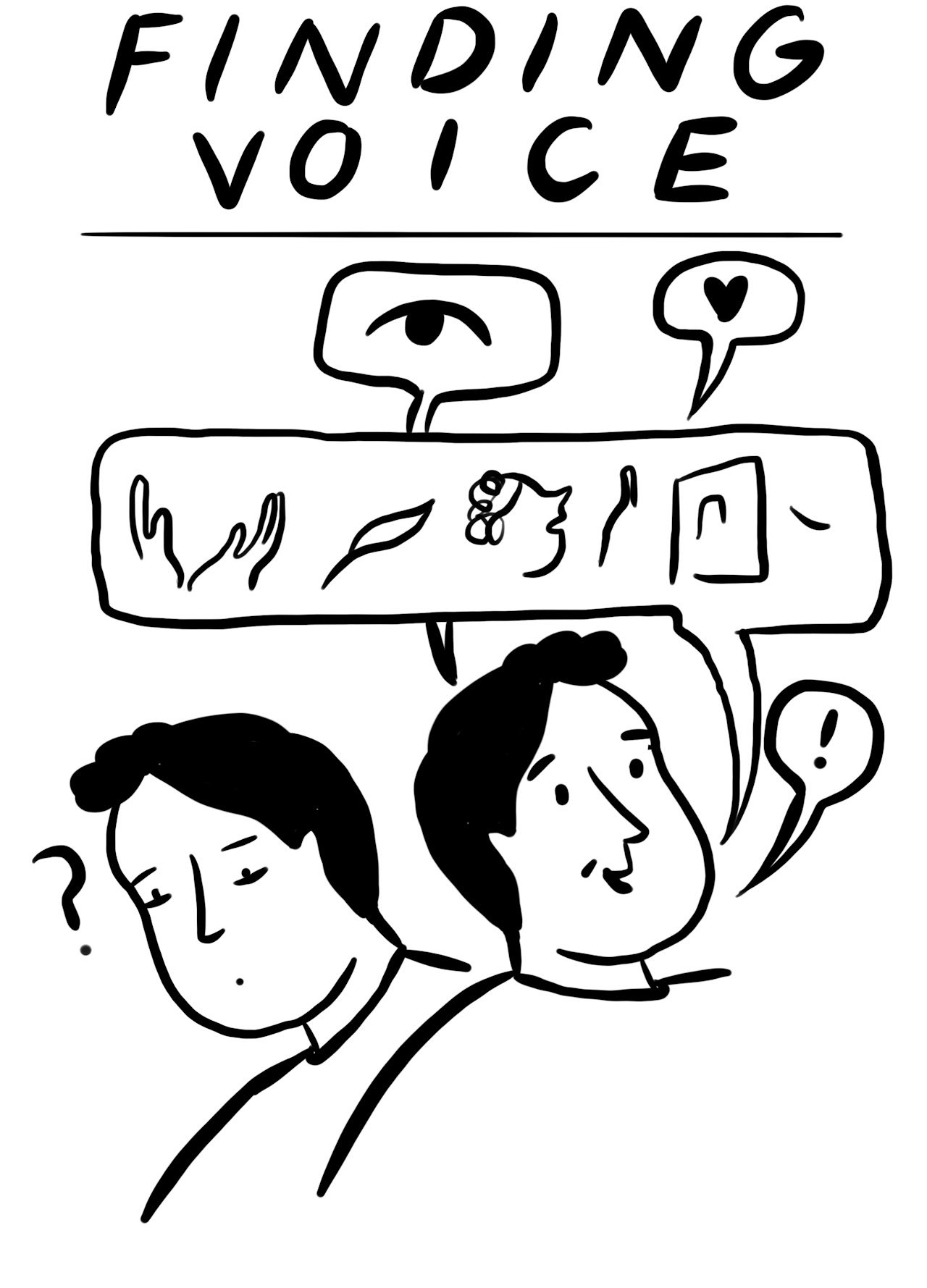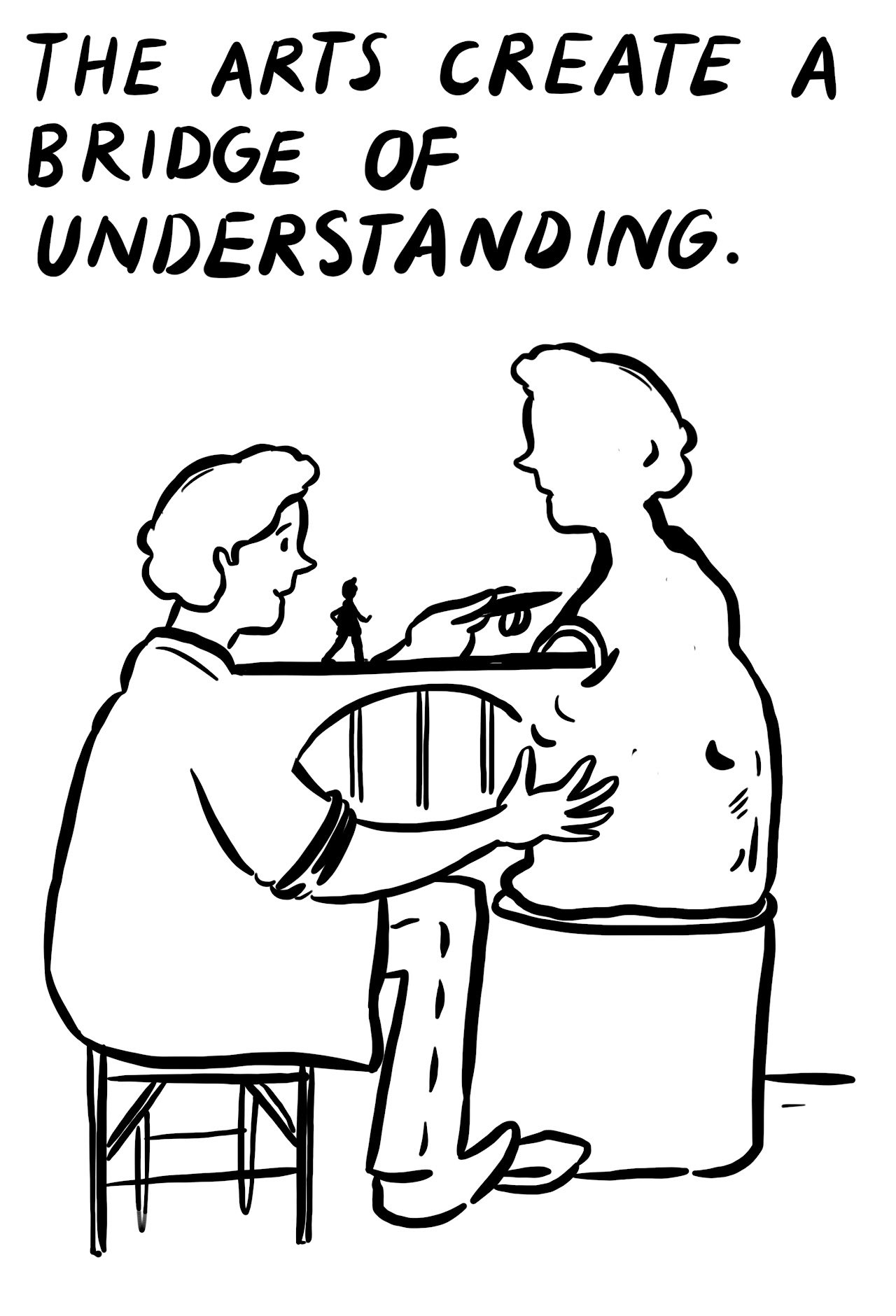Creative Enquiry
Key Ideas
Creative enquiry is the exploration of lived experience through the arts.
Encountering and understanding ourselves better, reconnecting with our values, meaning and purpose, gaining self-acceptance, developing positive relationships and personal growth are features of human flourishing that have all been described by medical students engaging in creative enquiry. These dimensions of creative enquiry also can lead to practitioner development (developing our understanding of our healthcare practices in their intersubjectivity and complexity).
YOUNIE, L. 2021. What does creative enquiry have to contribute to flourishing in medical education? In: MURRAY, E. & BROWN, J. (eds.) The mental health and wellbeing of healthcare practitioners: research and practice. Wiley-Blackwell.
YOUNIE, L. & SWINGLEHURST, D. 2020. Creative enquiry and the clinical encounter. Br J Gen Pract, 70, 26-27.
Meaning making
Through creative expression we engage with our unique ways of seeing and making sense of situations.
New vistas
The imaginative work of creative enquiry can also invite us to look through different lenses, gaining new vistas and perspectives by writing, painting and exploring from other viewing points.
Finding voice
The arts allow us to engage with the unsayable and indescribable. Through their different affordances they can be a catalyst to tease out the ineffable, emotional and intuitive dimensions of practice and experiencing.
Interior landscape
The arts enable us to inspect our own ideas, explore our own interior landscape at times surprising us by what emerges.
Bridge
Through metaphor, image, colour, rhythm and silence we evoke and engage others in our creative experiencing. Collaborative creative expression can nurture dialogue, meaning making and the sharing of our inner lives.
Key Concepts for Educators
-
Exploring lived experience through the arts. This may involve poetry, drama, photography, painting or any art form coupled with reflection. Creative enquiry allows for imaginative engagement with one’s own experience as well as trying out someone else’s shoes.
-
The precious silence that descends over a group exploring thoughts and experiences through creative expression… words, paints, clay, material, feathers…
Csikszentmihalyi, M. 1990. Flow: The Psychology of Optimal Experience. New York: Harper and Row.
-
Engaging with not just the patients stories, experiences and meaning making but also the stories and experiences of the health professionals as they seek to care for people at the sharp end of suffering.
-
Facilitation of transformative creative enquiry learning spaces requires both strength and vulnerability, sharing and silence, engagement and the creation of space for others to engage. Honesty, openess and vulnerability in the facilitator (clinician) sets the tone for group dialogue and sharing.
Younie L. Vulnerable leadership. London J Prim Care (Abingdon). 2016;8(3):37-8.
-
Creating, holding and protecting transformational spaces for others and ourselves is an art. The facilitator is an artist of the invisible realm of transformational space (Seeley, 2011).
Seeley, C. 2011. "Uncharted territory: Imagining a stronger relationship between the arts and action research." Action Research 9 (1):83-99.
-
Described by Keats as ‘capable of being in uncertainties, mysteries, doubts…’ (Keats 1817)
Keats, J. 1817. "John Keats' Negative Capability." BBC, accessed 9/9/10. https://www.bl.uk/romantics-and-victorians/articles/john-keats-and-negative-capability.
-
Transformative learning involves the reflective transformation of beliefs, attitudes, opinions, and emotional reactions arising from our meaning schemes (Imel, 1998). Creative enquiry has the potential to enhance transformative learning through invitation of mulitple perspectives and viewing points, engagement with other languages of expression, metaphor and symbolism, as well as allowing affective and cognitive processing.
Imel, S. 1998. "Transformative learning in adulthood." accessed 7/5/10. http://www.ericdigests.org/1999-2/adulthood.htm.
-
Participatory engagement can relate to the educator, listening and improvising within the constraints and possibilities of their work environment as to where the introduction of creative enquiry may be fruitful. Participatory engagement can also relate to learners listening and improvising within their creative enquiry experience and be likened to the parallel process of the clinician practitioner listening to their patients and responding to what is emerging.
'The technician’s solution lies outside of the situation and can usually be found in a book or journal, whereas the practitioner’s solution lies in the situation itself' (Rolfe, 2003)
Rolfe G. Practice Development is Practitioner Development. 6th Annual Practice Development ConferenceEarth Centre; Doncaster 2003.
-
Whilst acquiring the knowledge needed to diagnose and treat disease might be an intellectual pursuit, development of an interpersonal and practice-based understanding is a more personal, embodied and applied endeavour. Learning within this realm may take the form of engagement with intersubjectivity, narrative humility, reflexivity, developing one’s voice and use of space and silence. ‘Practitioner development’ draws on Schon’s writing about the reflective practitioner being in dialogue with the situation (Schön 1987, p13) and Fish’s ‘practitioner researcher’, professionals who recognise the need for themselves as practitioners to understand their own practice and consider it critically (Fish 1998).
Fish, D. 1998. Appreciating Practice in the Caring Professions; Refocusing Professional Development & Practitioner Research. Oxford: Butterworth-Heinemann.
Schön, D.A. 1987. Educating the reflective practitioner: toward a new design for teaching and learning in the professions. San Francisco, CA: Jossey-Bass
Creative Enquiry Courses
In 2003 I developed the Creative arts in health and illness SSC (Student Selected Component) and have been running it ever since. This is the engine room of creative enquiry development, working with small groups of students as well as arts for health therapists and consultants and other clinicians.
In 2004 I introduced creative enquiry into the year 1 GP placement at the University of Bristol.
In 2017 I introduced creative enquiry into the student GP prize.
In 2020 I worked virtually with a team of students/clinicians to invite creativity into lockdown and COVID times.
In 2020 I introduced a creative enquiry presentation on compassion and generalism into the year 3 GP placement.
This is a year 5 medical student take on how to engage with creative enquiry, make for his peers in 2022.







